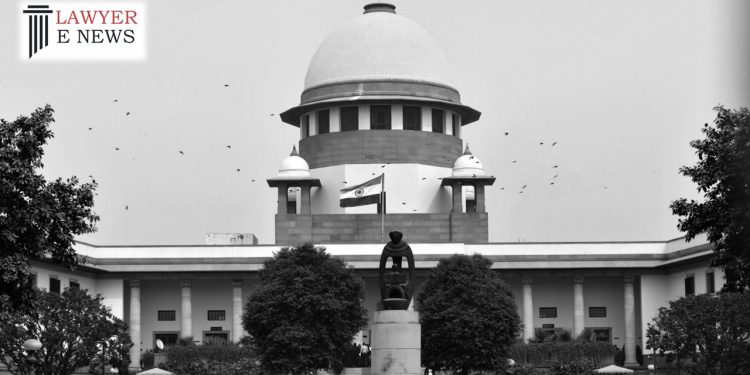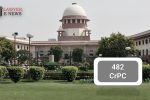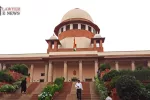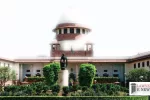In appropriate cases, the High Court can order further/reinvestigation under Section 482 CrPC- Supreme Court

The Supreme Court noted that a High Court may use its inherent authority under Section 482 CrPC to order additional investigation or even reinvestigation in the right circumstances.
The bench of Justices Dinesh Maheshwari and Aniruddha Bose stated, “The provisions of Section 173(8) CrPC do not limit or affect such powers of the High Court to pass an order under Section 482 CrPC for further investigation or reinvestigation, if the High Court is satisfied that such a course is necessary to secure the ends of justice.”
The court further stated that such authority should only be used in extraordinary circumstances, with caution.
In this case, the High Court ordered the Magistrate to instruct the police to further investigate the case in accordance with Section 173(8) CrPC regarding the allegations against the District Manager of the Bihar State Food and Civil Supplies Corporation and to seek the report within a period of three months. This was done in order to settle a petition brought under Section 482 CrPC.
The appellant brought the following argument in his appeal before the Supreme Court: If the Magistrate before whom the charge-sheet had been presented and who had taken cognizance did not follow any such procedure, was the High Court correct in directing the Magistrate to order additional investigation in the exercise of its inherent powers under Section 482 CrPC?
The court noted that the Magistrate may also order an investigation under Sections 156(3) and/or 173(8) CrPC or he may immediately take cognizance under Section 190(1)(c) CrPC where he is of the opinion that the results of the investigation in the form of the report filed before him are not satisfactory. Referring to numerous decisions on this issue, the bench provided the following summary:
A fair trial is guaranteed by the 1973 Code of Criminal Procedure, and it can only get started after a just and fair inquiry. The main goal of every investigation and inquiry, whether conducted by the police or the magistrate, is to make sure that the genuine criminals are properly apprehended and that no innocent people are put on trial.
(b) After receiving the report of the inquiry, the Magistrate has been granted the authority to order additional investigation in accordance with Section 173(8) CrPC in order to ensure a proper investigation in accordance with Section 156 CrPC. The Magistrate’s judgement, which must be used based on the specific facts of each case and in compliance with the law, determines whether or not a further investigation should be authorised.
(c) Even though the Magistrate has the primary authority to order further investigation in a case in which a charge-sheet has been filed and that authority must be exercised in accordance with Section 173(8) CrPC’s restrictions, in the right circumstance, the High Court may exercise its inherent authority under Section 482 CrPC to order further investigation if it believes that the investigation is not proceeding in the right direction or if the circumstances of the case otherwise require it. The requirements of Section 173(8) CrPC do not restrict or impede the High Court’s ability to issue an order under Section 482 CrPC requesting additional inquiry or reinvestigation if it determines that doing so is necessary to uphold the interests of justice.
(d) Even where the High Court’s broad authority under Section 482 CrPC to order additional research or reinvestigation is acknowledged, such authority should only be used in extraordinary circumstances.
(e) The powers granted by Section 482 CrPC are primarily intended to achieve real and substantial justice; they are neither unlimited nor unrestricted. The High Court is not permitted to issue orders while using these powers in a way that would violate other authorities’ authority or jurisdiction. When ordering additional investigation or reinvestigation, the High Court, for instance, cannot direct the State to seek the State Public Prosecutor’s advice as to what legal provision a person should be charged under and tried under, nor can it direct the State to only look into the case from one particular angle. The High Court cannot specifically order that a specific person must be prosecuted as a result of additional inquiry or reinvestigation while exercising such inherent powers in unusual circumstances.
Taking note of the case’s facts, the court stated that it is satisfied that the current instance had been one with extraordinary and unique characteristics, and that the High Court was appropriate in ordering further investigation, particularly about the appellant’s role.
Another question presented was whether the High Court was right in making the contested ruling without giving the appellant a chance to be heard. The court stated that the specific combination of facts and circumstances of the case will always determine the question of hearing opportunity in such instances. The bench stated in Popular Muthiah v. State: (2006) 7 SCC 296:
Devendra Nath Singh
vs
State of Bihar





